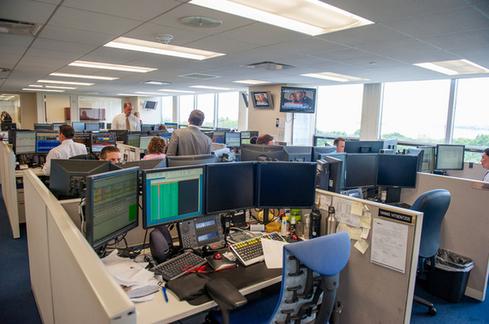05:25 PM
Industry Working to Build Infrastructure to Enable Central Clearing of OTC Derivatives
In the war to rid the financial markets of the sort of unchecked risk that brought the global economy to its knees, regulators have taken aim at over-the-counter derivatives. But while lawmakers in the U.S. Senate debate key provisions of financial reform that will impact OTC derivatives regulation, major dealers and buy-side participants are proceeding with substantial technology changes in preparation for central clearing requirements.
The focus in the U.S. has been on credit default swaps (CDSs) because of the role they played in exacerbating the financial crisis, but the industry also is laying out goals for clearing interest rate swaps, and plans for equity derivatives also are in the pipeline. Already, major banks have been working hard on building connectivity to the central counterparty clearinghouses (CCPs) for credit derivatives, anticipating that the federal regulation that eventually is passed will require central clearing to reduce counterparty risk and thus, systemic risk. The idea is that if a single bank were to default, the clearinghouse would settle the outstanding trades, preventing a cascade of bank failures.
The details of central clearing rules still are uncertain. Lawmakers are negotiating with lobbyists who represent corporate hedgers that want exemptions from posting margin on CCPs and dealers that want to maintain the status quo of a bilateral market. The proposals even could force the banks that currently sell derivatives privately to trade them on exchanges so that everyone can see the prices.
Sen. Christopher Dodd, head of the U.S. Senate Banking Subcommittee, was expected to introduce the Senate's version of a financial reform package in March. That bill must be reconciled with the House version passed last December before a final bill can be sent to the president for signing. Dodd reportedly is targeting July 4 as a deadline for delivering the final bill.
Complex World, Complex Tech Changes
But the world of OTC derivatives -- insurance-like contracts that allow participants to hedge against (or speculate on) the default of a corporate bond issuer, a sovereign country or even the movement of interest rates, equities and foreign exchange -- is complex. Participants range from producers and corporate hedgers to institutional asset managers and OTC dealers that are structuring and pricing the deals, and they all have their own interests.
"We see the need for improvement," comments Sam Peterson, senior adviser with the government and regulatory advisory practice of Chatham Financial, an independent foreign exchange and risk management adviser to corporate end users of OTC derivatives. "But we're worried about overreaching regulation where you treat the corporate users the same as the AIGs of this world because they have currency risk."
While the move toward central clearing of OTC derivatives is underway, transformative elements of the legislation remain up in the air. Major points up for debate include increased capital requirements and limits on leverage, the appointment of a systemic risk regulator, the mandating of electronic trading of OTC derivatives on exchanges or swap execution facilities, and the aggregation of trades reported to the global repositories.
Even the instruments that will be affected have not yet been defined. "If you look at these reform bills, are they talking about swaps only?" asks Chris Zingo, EVP of sales and support for the Americas with SuperDerivatives. "Which products will fit into this model, and who is going to determine that?"
There also are questions about the governance of some clearinghouses, which are owned by consortia of the large derivatives dealers.
Lloyd Altman, senior executive with Accenture's capital markets practice, compares the potential technology changes required to comply with some of the proposals to open heart surgery. "Once you start to change the way you trade and clear, it's a significant change," he says, noting that firms could be required to trade all standardized derivatives on an electronic platform such as Tradeweb or Market Axess, or even on exchanges.
Ivy is Editor-at-Large for Advanced Trading and Wall Street & Technology. Ivy is responsible for writing in-depth feature articles, daily blogs and news articles with a focus on automated trading in the capital markets. As an industry expert, Ivy has reported on a myriad ... View Full Bio
























